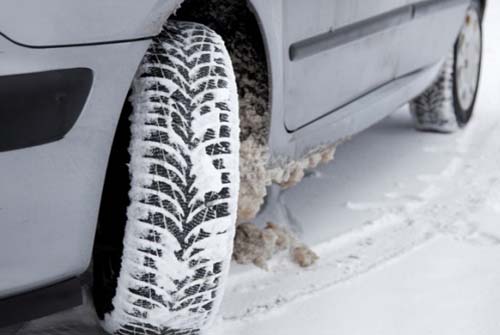Getting Ready for Winter Travel
With wintertime comes the holiday season, and with the holidays comes traveling to see friends and family. If you are planning on long road trips this season, there are a number of things you should keep in mind to ensure you stay safe on the road.
Emergency Kit
Having an emergency kit in your car is important in any situation, but it can be especially important in winter. The following items will help you be ready to handle an emergency on the road during your travels:
• Extra blankets, jackets, and gloves
• Flashlights and batteries
• Jumper cables (cars batteries tend to die more often in cold weather)
• Cell phone with car adapter
• Cat litter or sand to help gain traction on ice
• Ice scraper
In addition, a first aid kit, basic auto repair supplies, duct tape, and nonperishable food items should also be included in a car emergency kit at any time of year.
Driving Habits
If you anticipate driving through ice and snow, it’s vital to make sure you know how to handle adverse road conditions. Heavy snow can limit visibility, while ice reduces traction, so it’s important to slow down and give yourself plenty of space to stop. Otherwise, an accident is much more likely.
Also, when planning your trip, allow extra time to get to your destination in case roads become impassable, you need to take a detour, or you simply need to slow down for a while to keep control of your vehicle.
Vehicle Checkup
The car itself needs to be ready for the trip, so getting a pre-holiday checkup is a must. Some of the items that need to be checked prior to winter travel include the following:
• Fluids: Oil, antifreeze, and wiper fluid all need to be checked and replaced as needed. This not only keeps the fluid levels where they need to be, but it also ensures that debris doesn’t build up in the fluid lines of the vehicle. Also, getting these checked will help detect any possible leaks that may have occurred since the last checkup.
• Brakes: When there is ice on the road, stopping is hard enough, so it is vital to make sure your brakes are functioning properly.
• Tires: Rotating the tires helps the tread to wear evenly. Also, making sure they have enough tread to handle tougher road conditions is vital to your safety.
• Battery: As previously mentioned, car batteries fail more frequently in cold weather, mainly because the cold will slow down the chemical reactions they use to do their work. If your battery has not been replaced in the last three years, now is the time to do it.
• Spark plug: An old spark plug will also fail more in winter, and if it misfires, it can lead to other more serious issues. Replacing this component is cheap and simple, and should be done as soon as it starts to wear out.




